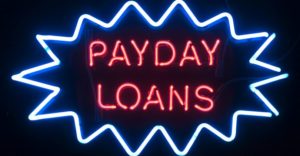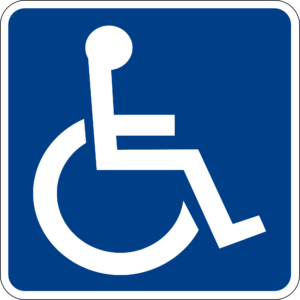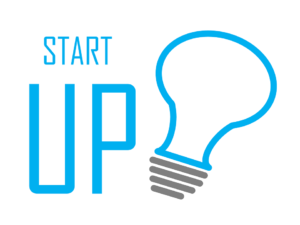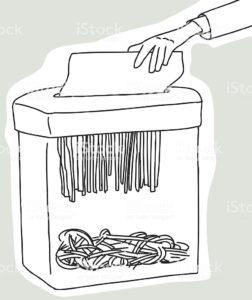![]() Credit cards come with all types of rewards currently, but do these programs actually help those with more money? Aaron Klein for the Los Angeles Times explains that since luxury, high-end credit cards come with higher swipe fees (the money charged to merchants every time a card is used), those with more money to spend with these types of credit see a much higher benefits and cost merchants more. He goes as far as suggesting that Congress consider legislation for rewards cards or make these perks taxable income.
Credit cards come with all types of rewards currently, but do these programs actually help those with more money? Aaron Klein for the Los Angeles Times explains that since luxury, high-end credit cards come with higher swipe fees (the money charged to merchants every time a card is used), those with more money to spend with these types of credit see a much higher benefits and cost merchants more. He goes as far as suggesting that Congress consider legislation for rewards cards or make these perks taxable income.
Make the Best of Black Friday
 Want to get the best deals and save the most money on Black Friday? Elissa Sanci for Smarter Living, The New York Times offers tips and shopping best practices in her article: 5 Things to Avoid on Black Friday
Want to get the best deals and save the most money on Black Friday? Elissa Sanci for Smarter Living, The New York Times offers tips and shopping best practices in her article: 5 Things to Avoid on Black Friday
Black Friday is a money- and time-sucking vortex. Here’s what not to do this year. She highlights her list with entertaining anecdotes of those who fell victim to the seemingly needed purchases and makes recommendations for how to avoid these pitfalls.
Too Good to be True?
 Earnin, the latest iteration of payday lending that advertises a no-fee, but tips appreciated model seems too good to be true. Their website boasts having raised over $190 million from investors. Venture capitalists tend to be well informed individuals with a sense for solid business plans and they’ve given Earnin a large amount of money. The pay-it-forward model sounds great and even feels warm and fuzzy, but can it last?
Earnin, the latest iteration of payday lending that advertises a no-fee, but tips appreciated model seems too good to be true. Their website boasts having raised over $190 million from investors. Venture capitalists tend to be well informed individuals with a sense for solid business plans and they’ve given Earnin a large amount of money. The pay-it-forward model sounds great and even feels warm and fuzzy, but can it last?
Column: It’s called Earnin. I have no idea how the company ever turns a profit
Paying Taxes on Crypto Currency?
 Do you owe taxes on crypto currency? Chances are you’re safe if you have no idea what that is, although some parents were unaware that their high-school and college aged children were trading in Bitcoin. The IRS is currently cracking down on tax evaders with digital holdings through two versions of a warning letter. The first implying the tax payer may have no knowledge of these accounts, and the second enforcing a deadline for recipients to disclose all of their crypto transactions or risk legal recourse. Accounting Today suggests the best ways to handle these tax situations based on the type of letter received in the article, Crypto tax avoiders face IRS roulette: Fess up or try to hide .
Do you owe taxes on crypto currency? Chances are you’re safe if you have no idea what that is, although some parents were unaware that their high-school and college aged children were trading in Bitcoin. The IRS is currently cracking down on tax evaders with digital holdings through two versions of a warning letter. The first implying the tax payer may have no knowledge of these accounts, and the second enforcing a deadline for recipients to disclose all of their crypto transactions or risk legal recourse. Accounting Today suggests the best ways to handle these tax situations based on the type of letter received in the article, Crypto tax avoiders face IRS roulette: Fess up or try to hide .
Disabilities at Work
 Choosing to disclose a disability at work comes with a host of possible outcomes. Many who have hidden disabilities strive to keep them that way, fearing they’ll be treated differently if their co-workers are aware. Accommodations are required under the law but may be viewed as a burden by the employer and even though mandated, often are denied. If you find yourself in this position, what should you do? Liz Schumer for the New York Times thoughtfully explores this topic in her article, How to Disclose a Disability to Your Employer (and Whether You Should)
Choosing to disclose a disability at work comes with a host of possible outcomes. Many who have hidden disabilities strive to keep them that way, fearing they’ll be treated differently if their co-workers are aware. Accommodations are required under the law but may be viewed as a burden by the employer and even though mandated, often are denied. If you find yourself in this position, what should you do? Liz Schumer for the New York Times thoughtfully explores this topic in her article, How to Disclose a Disability to Your Employer (and Whether You Should)
Getting the Most Out of Your Education
![]() Did you know that by including certain scholarships as income you might be able to increase your education credit, reduce your total tax, or increase your tax refund? The key is finding awards that may be used for other expenses such as books, or room and board.
Did you know that by including certain scholarships as income you might be able to increase your education credit, reduce your total tax, or increase your tax refund? The key is finding awards that may be used for other expenses such as books, or room and board.
For detailed instructions on determining what kinds of grants and scholarships are eligible and how to apply these for best tax savings, see Maximizing the higher education tax credits: Including a scholarship in gross income can sometimes save on taxes in the Journal of Accountancy.
Flash in the Pan
 When you hear the word Start-up, what do you think of? Lots of venture capital raised quickly to create showy products that cater to a niche market? Almost daily we see the demise of these companies in the news and the reality of the “Fail Fast” model. But this is not true for all start-ups, such as Evernote which opened in 2004. The company is currently facing the harsh reality of two options: slow death or a complete makeover. Erin Griffith for the New York Times offers a detailed look at Evernote as an example of a long standing, 15 years, start-up in her article, A Unicorn Lost in the Valley, Evernote Blows Up the ‘Fail Fast’ Gospel.
When you hear the word Start-up, what do you think of? Lots of venture capital raised quickly to create showy products that cater to a niche market? Almost daily we see the demise of these companies in the news and the reality of the “Fail Fast” model. But this is not true for all start-ups, such as Evernote which opened in 2004. The company is currently facing the harsh reality of two options: slow death or a complete makeover. Erin Griffith for the New York Times offers a detailed look at Evernote as an example of a long standing, 15 years, start-up in her article, A Unicorn Lost in the Valley, Evernote Blows Up the ‘Fail Fast’ Gospel.
To Buy or Not To Buy
 How closely do you monitor your personal spending? Are you worried that every cup of coffee may break the bank? Tim Hererra for the New York Times has some great advice and encouragement for you. Check out his article, Here’s Some Money Advice: Just Buy the Coffee, and for more budgeting with “big picture” finance tips try their 7-day Money Challenge.
How closely do you monitor your personal spending? Are you worried that every cup of coffee may break the bank? Tim Hererra for the New York Times has some great advice and encouragement for you. Check out his article, Here’s Some Money Advice: Just Buy the Coffee, and for more budgeting with “big picture” finance tips try their 7-day Money Challenge.
Hurry Up and Do Nothing
 In our current state of technology overload and the expectations of busyness, we’ve seemingly forgotten our need for quiet and calm. New studies are showing that our bodies need this time to rest, reconnect, and even become more creative. The New York Times article, The Case for Doing Nothing recommends finding the state of “Niksen,” a Dutch word meaning to do nothing. Keeping our bodies in motion and our brains occupied may feel productive but often leads to exhaustion and a reduced capacity to work efficiently. Turns out that we actually need extreme down time, or as they say in the article, boredom. Give it a try! Take an afternoon to sit and daydream, go to the park and people watch, sit on the couch and imagine, then see how you feel afterward.
In our current state of technology overload and the expectations of busyness, we’ve seemingly forgotten our need for quiet and calm. New studies are showing that our bodies need this time to rest, reconnect, and even become more creative. The New York Times article, The Case for Doing Nothing recommends finding the state of “Niksen,” a Dutch word meaning to do nothing. Keeping our bodies in motion and our brains occupied may feel productive but often leads to exhaustion and a reduced capacity to work efficiently. Turns out that we actually need extreme down time, or as they say in the article, boredom. Give it a try! Take an afternoon to sit and daydream, go to the park and people watch, sit on the couch and imagine, then see how you feel afterward.
Go Paperless!
Ready to lose the piles, folders, and filing cabinets in your home office? Now’s the time! Wirecutter recommends the Scanbot Pro Ap for Android and IOS to begin saving your paper files onto your phone and home computer. One exciting feature is text recognition that will allow you to search for any word within each document. Wirecutter also offers a list of shredders for when you no longer need the paper files, How to Go Paperless With Your Home Office. Organizing these files into a specific folder and backing them up onto a thumb drive or other external hard drive is the final, important step. They assure that you will be amazed during tax season when all of your documents are accessible at the touch of a button.
